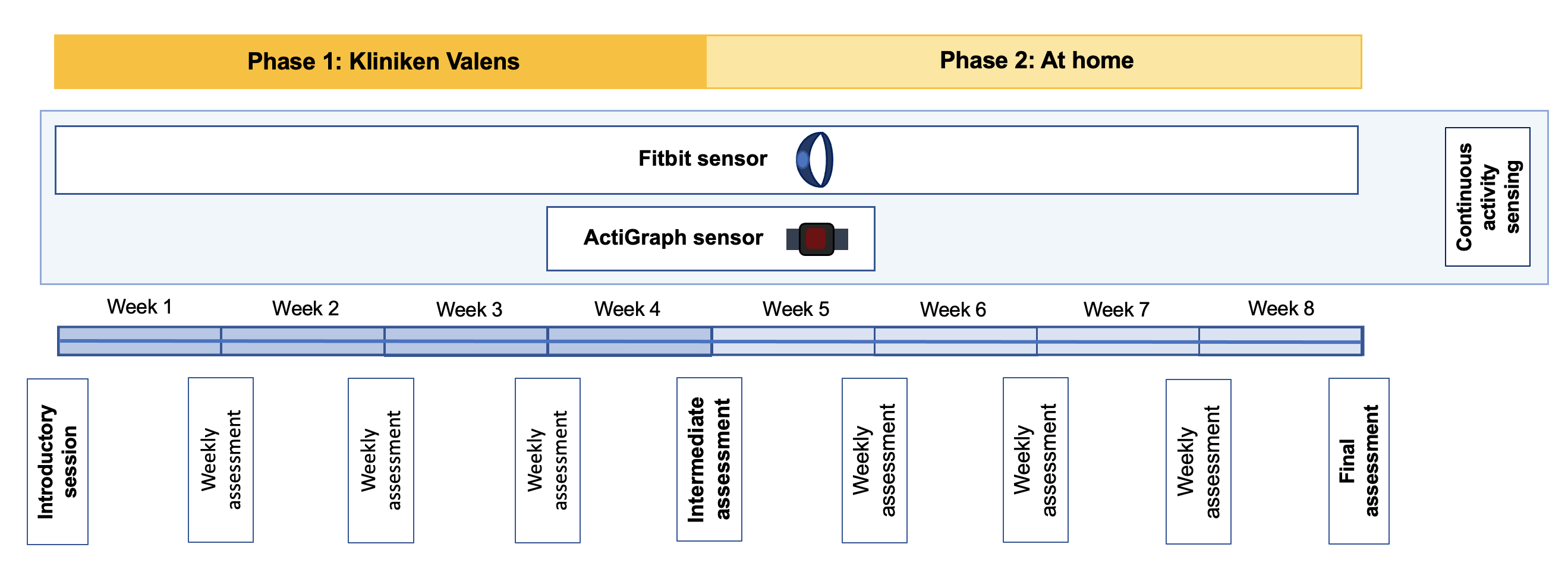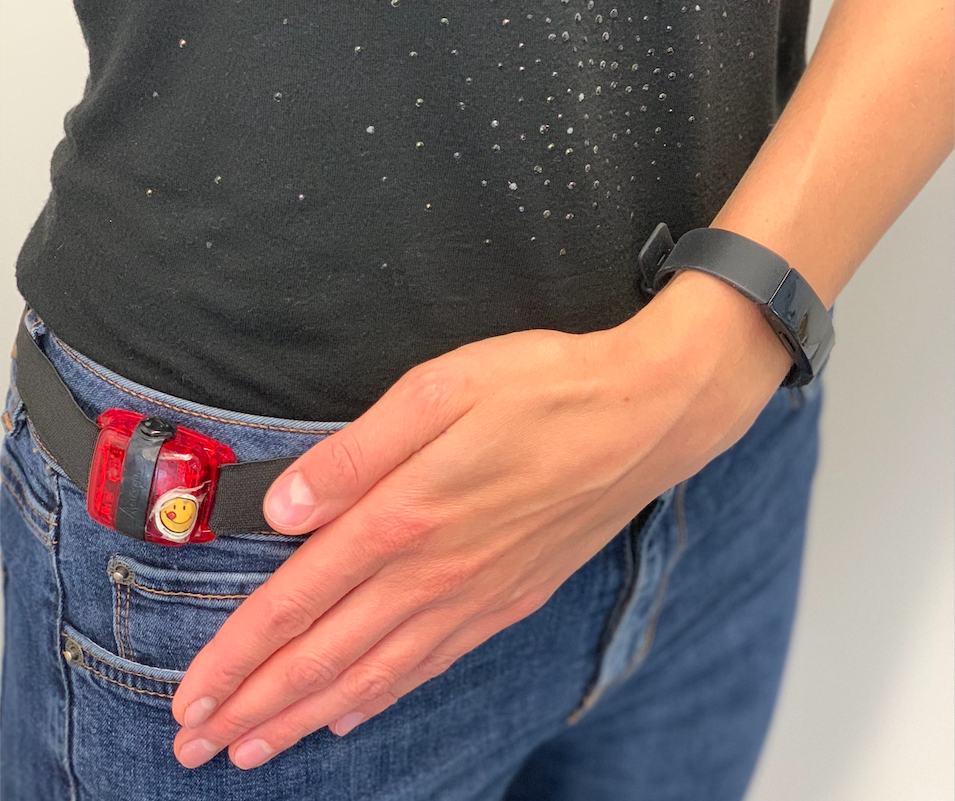Barriers to Physical Activity in People With MS (BarKA-MS)
Researchers Involved
Dr. Roman Gonzenbach
Dr. Jan Kool
Ashley Polhemus
Ramona Sylvester
research areas
timeframe
2021 - 2022
contact
viktor.vonwyl@uzh.chRationale
Multiple sclerosis (MS) is a both severe and highly heterogeneous chronic health condition. Tailored treatment is therefore key to optimally support persons with MS. Daily-life symptomatology of MS differs substantially across individuals – and so do the digital traces left in activity data captured through passive sensing devices. Harnessing the potential of this rich and high-granular data, the present research explores the potential of deriving unique information about movement patterns and trajectories from such digital traces.
Multiple Sclerosis (MS) is a chronic inflammatory disease that leads to the demyelination of the central nervous system. Key symptoms of MS include restrictions in physical activity which increase over time and severely affect individuals’ quality of life. As such, promoting physical activity is at the core of MS treatment. Efforts to increase physical activity in persons with MS has yielded encouraging results in terms of decelerating disease progression and partial regeneration from MS symptoms. However, any improvements in daily activity levels and physical fitness that may be achieved are typically challenging to maintain in daily life as persons with MS face multiple barriers such as fatigue, a less structured environment, or time restrictions. The emergence of novel, real-life digital data sources, such as real-time passive physical activity sensing, has created novel avenues for monitoring chronic health conditions like MS over longer time periods with low participant-effort. This type of data represents a unique and untapped resource for personalization of treatment for optimal health outcomes.
Research aims
The BarKA-MS project aims to capture daily-life and real-time physical activity patterns in persons with MS and further to determine the key factors limiting physical activity. Finally, a sub-goal of the project pertains to the validation of the consumer-grade sensing device ‘Fitbit Inspire HR’ for future research implementing this type of passive activity sensing methodology.
Study design
The project examines 45 persons with MS who attend an inpatient rehabilitation stay at Kliniken Valens (recruitment completed; see Figure and https://clinicaltrials.gov/ct2/show/NCT04746807). Participants are equipped with a Fitbit Inspire HR activity tracker and followed for up to 8 weeks (2-4 weeks during rehabilitation and 4 weeks at home). Participants also complete a series of weekly questionnaires using an in-house developed, secure mobile health platform (Research Management Information System, RMIS, developed by the Digital and Mobile Health Group of Prof. von Wyl). Questionnaires tap key information concerning a person’s MS disease such as physical activity level as well as barriers to such activity, including pain, fatigue, and mental wellbeing. For the Fitbit validation study, participants wear an additional research-grade activity tracker (‘gold standard’) for two weeks in order to compare its activity assessments with those of the Fitbit.

Novel digital data sources
To capture daily-life physical activity patterns as well as qualitative perspectives, we leverage novel digital data sources (passive activity sensing data, textual data) through innovative analysis methods like time series analysis and natural language processing techniques.
Real-time activity monitoring
Monitoring key activity parameters in real time through passive sensing devices enables the assessment of high-resolution individual-level activity profiles whereby minimizing the required effort for participants.
Validation of activity sensing devices
Data quality of the consumer-grade, affordable sensing device (‘Fitbit Inspire HR’) is examined by its comparison with a research-grade activity tracker (‘Actigraph’).



